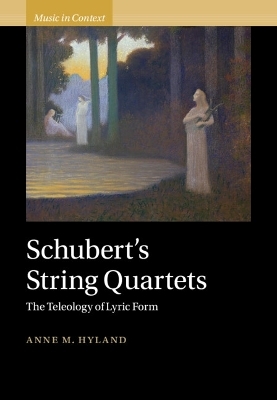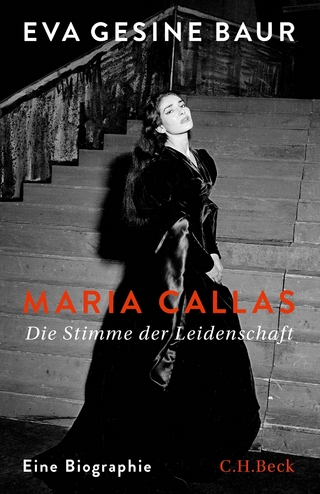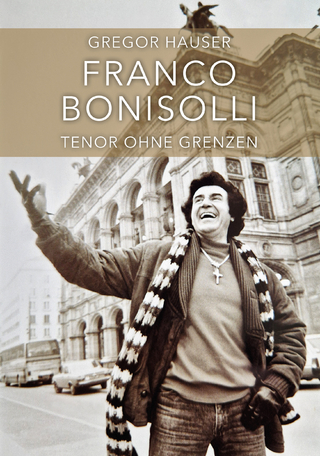
Schubert's String Quartets
The Teleology of Lyric Form
Seiten
2023
Cambridge University Press (Verlag)
978-1-009-21092-8 (ISBN)
Cambridge University Press (Verlag)
978-1-009-21092-8 (ISBN)
Hyland examines Schubert's incorporation of lyric elements into his sonata-form works, and demonstrates how the lyric became a foundational stylistic and formal building block in Schubert's instrumental chamber music. It will be particularly valuable to students and scholars working in the discipline of the 'new Formenlehre'.
Franz Schubert's music has long been celebrated for its lyrical melodies, 'heavenly length' and daring harmonic language. In this new study of Schubert's complete string quartets, Anne Hyland challenges the influential but under-explored claim that Schubert could not successfully incorporate the lyric style into his sonatas, and offers a novel perspective on lyric form that embraces historical musicology, philosophy and music theory and analysis. Her exploration of the quartets reveals Schubert's development of a lyrically conceived teleology, bringing musical form, expression and temporality together in the service of fresh intellectual engagement. Her formal analyses grant special focus to the quartets of 1810–16, isolating the questions they pose for existing music theory and employing these as a means of scrutinising the relationship between the concepts of lyricism, development, closure and teleology thereby opening up space for these works to challenge some of the discourses that have historically beset them.
Franz Schubert's music has long been celebrated for its lyrical melodies, 'heavenly length' and daring harmonic language. In this new study of Schubert's complete string quartets, Anne Hyland challenges the influential but under-explored claim that Schubert could not successfully incorporate the lyric style into his sonatas, and offers a novel perspective on lyric form that embraces historical musicology, philosophy and music theory and analysis. Her exploration of the quartets reveals Schubert's development of a lyrically conceived teleology, bringing musical form, expression and temporality together in the service of fresh intellectual engagement. Her formal analyses grant special focus to the quartets of 1810–16, isolating the questions they pose for existing music theory and employing these as a means of scrutinising the relationship between the concepts of lyricism, development, closure and teleology thereby opening up space for these works to challenge some of the discourses that have historically beset them.
Anne M. Hyland is Lecturer in Music Analysis at the University of Manchester and Associate Editor of Music Analysis. Her work on Schubert has appeared in leading journals and edited volumes on the composer. Her first published article won the Music Analysis 25th Anniversary Prize (2009).
Part I. Contexts: 1. The lyric impulse: musicological and methodological contexts; 2. Schubert's string quartets: historical and analytical contexts; Part II. Analysis: 3. Musical closure and functional transformation: reanimating the dynamics of the lyric; 4. Schubert the progressive: parataxis and the dialectics of lyric teleology; 5. The temporality of lyric teleology: once more between sonata and variation in Schubert's quartets.
| Erscheinungsdatum | 03.04.2023 |
|---|---|
| Reihe/Serie | Music in Context |
| Zusatzinfo | Worked examples or Exercises |
| Verlagsort | Cambridge |
| Sprache | englisch |
| Maße | 176 x 250 mm |
| Gewicht | 740 g |
| Themenwelt | Kunst / Musik / Theater ► Musik ► Klassik / Oper / Musical |
| ISBN-10 | 1-009-21092-0 / 1009210920 |
| ISBN-13 | 978-1-009-21092-8 / 9781009210928 |
| Zustand | Neuware |
| Haben Sie eine Frage zum Produkt? |
Mehr entdecken
aus dem Bereich
aus dem Bereich


